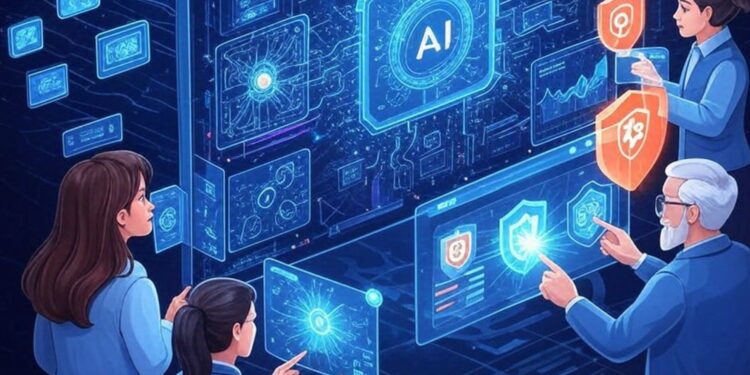The digital battlefield is undergoing a seismic shift. For decades, cybersecurity has largely operated on a reactive model – patching vulnerabilities, responding to breaches, and analyzing incidents after they’ve occurred. However, with the rapid proliferation of autonomous agents and advanced AI, this traditional approach is becoming obsolete. The imperative is clear: cybersecurity must evolve from a reactive posture to a truly proactive and even predictive one.
Autonomous agents, intelligent systems capable of perceiving, reasoning, and acting independently, are revolutionizing both the offensive and defensive sides of cyber warfare. On one hand, malicious AI agents can launch sophisticated, scalable, and personalized attacks with unprecedented speed and precision, exploiting vulnerabilities and executing complex cybercrime operations autonomously. Deepfake-enhanced fraud, AI-driven phishing campaigns, and even self-modifying malware are no longer futuristic concepts but present-day threats.
Conversely, these very same advancements offer the key to a robust defense. Proactive cybersecurity, powered by autonomous AI agents, is shifting the focus from damage control to prevention. These intelligent agents can tirelessly monitor vast networks, analyze massive datasets in real-time, and identify subtle anomalies that human analysts might miss. Unlike traditional rule-based systems, AI agents learn and adapt, continuously improving their threat detection capabilities by analyzing patterns and learning from past incidents.
Imagine security systems that can not only detect unusual network activity but also predict potential threats before they materialize. Autonomous agents can proactively scan infrastructure for weaknesses, prioritize remediation efforts, and even implement patches without human intervention. They can isolate compromised systems instantly, adjust firewall rules dynamically, and initiate recovery protocols at machine speed, drastically reducing the “dwell time” of attackers.
While the rise of autonomous agents presents new challenges, such as the potential for unintended consequences or the need for robust governance frameworks, the benefits for proactive defense are undeniable. By embracing agentic AI, organizations can move towards self-healing security ecosystems where human experts act as orchestrators and supervisors rather than overwhelmed responders. This paradigm shift will not only bolster defenses against an evolving threat landscape but also redefine the very essence of cybersecurity, ushering in an era of intelligent, adaptive, and truly proactive protection.










![Online Scam Cases Continue to Rise Despite Crackdowns on Foreign Fraud Networks [Myanmar] Online Scam Cases Continue to Rise Despite Crackdowns on Foreign Fraud Networks [Myanmar]](https://sumtrix.com/wp-content/uploads/2025/06/30-12-120x86.jpg)





